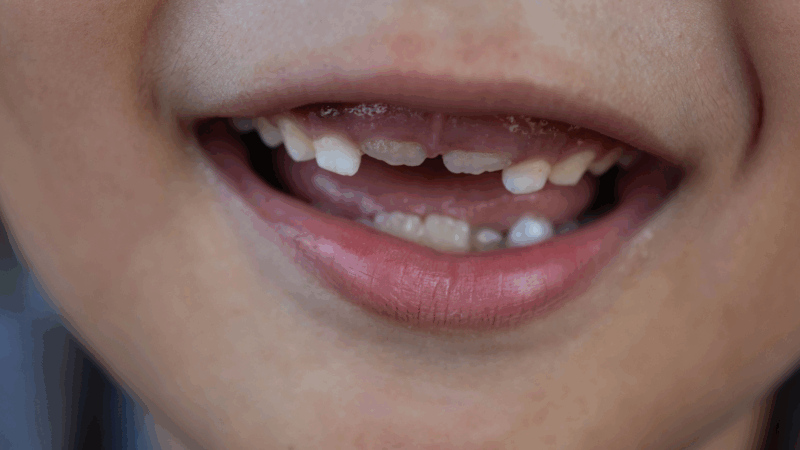FDA moves to ban fluoride supplements for kids, removing a key tool for dentists
Under the leadership of Health Secretary Robert F. Kennedy Jr., the Food and Drug Administration is seeking to remove prescription fluoride supplements for kids from the market.
These are fluoride tablets, drops or lozenges that are recommended for kids who don’t get fluoridated water to help prevent cavities.
The announcement Tuesday from FDA claims that ingested fluoride changes the human microbiome in a concerning way, even though the research it cites is inconclusive. It contradicts years of research and best practices established by professional medical groups.
“The best way to prevent cavities in children is by avoiding excessive sugar intake and good dental hygiene, not by altering a child’s microbiome,” FDA Commissioner Dr. Marty Makary, said in the FDA statement announcing the action. “When it comes to children, we should err on the side of safety.”
According to the announcement, the FDA plans to conduct a safety review and to take “appropriate action” to remove these products from the market by October 31. HHS also plans to issue “best practices for dental hygiene in children that are feasible, effective and do not alter gut health.”
Removing ‘a choice’ for medical providers
The move contradicts recommendations from the Centers for Disease Control and Prevention and U.S. Preventive Services Task Force, along with professional medical associations including the American Academy of Pediatrics, American Academy of Pediatric Dentistry and the American Dental Association.
All of them recommend low doses of fluoride supplements for a limited cohort – children who live in areas without fluoridated water. Additionally, the professional medical groups specify their use should be restricted to those at high risk of getting cavities. The fluoride drops and tablets can only be obtained through a prescription from a dentist or pediatrician.
“This removes a choice,” says Dr. Paul Casamassimo, chief policy officer for the American Academy of Pediatric Dentistry, “[It would] ban a treatment that is in the best interest of a patient, as determined by a trained, licensed health professional.”
Fluoride supplements are not recommended for most children because most U.S. communities provide fluoridated drinking water, according to the CDC.
However, Kennedy has directed the CDC to revise its recommendations for community water fluoridation, blaming the practice – and ingesting fluoride generally – for a range of health problems, even though harms have not been found at the recommended levels. Though high levels of fluoride can cause tooth mottling, or discoloration, and may be linked with lower IQ, low levels of fluoride are generally considered safe and key to preventing cavities.
This latest action, combined with a wave of moves by state legislatures to ban fluoride from water systems, “is very, very serious for oral health,” Casamassimo says. “It removes one of the tools that we as clinicians can use to stem tooth decay.”
It’s as though there’s a disease and there’s a medicine available to stop it – but clinicians are not allowed to prescribe it, he says.
Unsubstantiated gut harm claims
The FDA announcement claims: “Ingested fluoride has been shown to alter the gut microbiome, which is of magnified concern given the early development of the gut microbiome in childhood.”
While the two literature reviews which it cites find it likely that exposure to fluoride impacts the microbiome, both find that the effect is uncertain and may even be positive at low doses.
The evidence “suggests that the use of fluoride containing oral hygiene products may have beneficial effects on the oral microbiome regarding caries prevention,” states one of the papers, from researchers in Ireland.
The second paper, from researchers in the UK, found that while high doses of fluoride may harm the microbiome, low doses had either harmless or even positive effects. Both sets of researchers said the evidence is limited, and more studies are needed.
HUD proposes time limits and work requirements for rental aid
The rule would allow housing agencies and landlords to impose such requirements "to encourage self-sufficiency." Critics say most who can work already do, but their wages are low.
Paramount and Warner Bros’ deal is about merging studios, and a whole lot more
The nearly $111 billion marriage would unite Paramount and Warner film studios, streamers and television properties — including CNN — under the control of the wealthy Ellison family.
A new film follows Paul McCartney’s 2nd act after The Beatles’ breakup
While previous documentaries captured the frenzy of Beatlemania, Man on the Run focuses on McCartney in the years between the band's breakup and John Lennon's death.
An aspiring dancer. A wealthy benefactor. And ‘Dreams’ turned to nightmare
A new psychological drama from Mexican filmmaker Michel Franco centers on the torrid affair between a wealthy San Francisco philanthropist and an undocumented immigrant who aspires to be a dancer.
Bill making the Public Service Commission an appointed board is dead for the session
Usually when discussing legislative action, the focus is on what's moving forward. But plenty of bills in a legislature stall or even die. Leaders in the Alabama legislature say a bill involving the Public Service Commission is dead for the session. We get details on that from Todd Stacy, host of Capitol Journal on Alabama Public Television.
My doctor keeps focusing on my weight. What other health metrics matter more?
Our Real Talk with a Doc columnist explains how to push back if your doctor's obsessed with weight loss. And what other health metrics matter more instead.







